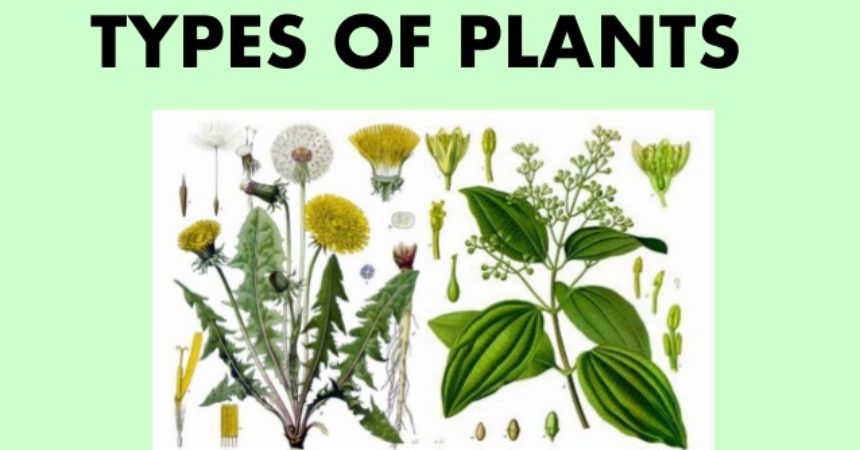Plants are the only source of living organisms, which helps us in different ways. Compared to all forms of life on earth, plants form a significant and primary role in the existence of life by providing food, energy, and balancing the level of oxygen in the atmosphere. Apart from food and oxygen, plants also provide different types of resources for humans, production of medicines, provide shelter, clothes to wear and other resources for Humans.
There are different varieties of plants species living on land, water, cold snowy mountains, dry and hot deserts, etc. We see different types of plants in our garden. Among which few are small, short, long, tall, few bear fruits and flowers, while few do not.
In this article let us know in detail about the different types of plants with examples.
Types of Plants
There are more than 300,000 species of plants and are mainly classified into different groups based on their growth, size, height, flowering types, seed-bearing fruits, seasons wise, mode of nutrition, and lot more. The different types of plants are Herbs, Shrubs, Trees, Climbers, Creepers, Flowering plants, Non-flowering plants, Dicot, Monocot, Annual, Biennial, Perennial, Saprophytic plants, Medicinal Plants, Insectivorous plants, etc.
| Types of Plants | Examples |
| Herbs | Paddy, Carrot, and Ginger |
| Shrubs | Rose, Jasmine, and China rose |
| Trees | Mango, Coconut, and Palm |
| Climbers | Bitter gourd, grapevine and sweet gourd |
| Creepers | Strawberry and money plant |
| Flowering plants | Tulips, lily, hibiscus, and lotus |
| Non-flowering plants | Pines, Cedars, and firs |
| Dicot | Apples, pears, and peas |
| Monocot | Onions, Corn, and Rice |
| Annual | Rice, Wheat, and Mustard |
| Biennial | Carrot, Tomato, and Radish |
| Perennial | Palm, Coconut, and Jackfruits |
| Saprophytic plants | Yeast, Mucor and Rhizopus |
| Insectivorous plants | Venus flytrap and Dionaea, plant |
| Medicinal Plants | Chamomile, Dandelions, lemon balm and Garlic |
These were a few information related to plants and their types. For more information related to the plants, and Plant cell diagram, students can visit BYJU’s website and also learn by watching interactive video lessons on various topics by subscribing to the BYJU’S YouTube Channel.











